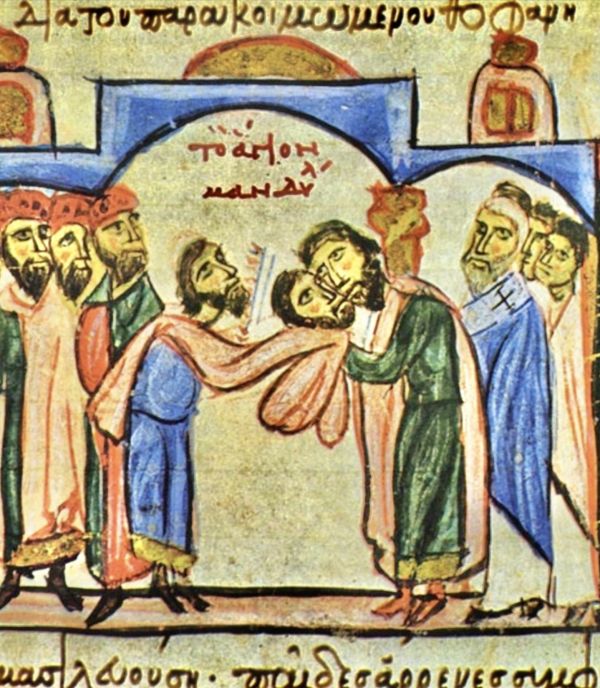In chapter fifteen of John, Jesus announces that his full Joy in us comes from abiding in his love.
Looking more closely at the life of the two Poor of Assisi, we realise that in the assiduous listening to the Word of God, translated into life, there was their authentic joy. Joy free from all kinds of trappings, of trifles aimed at delaying their going to Christ.
In the Sources, a repository of experiential firstfruits, we find passages that smell of naked beauty, of blissful poverty, of joy that finds its raison d'être in Union with God.
Already in his Admonitions Francis explains where true joy dwells.
"Blessed is that religious man, who has no joy and gladness except in the most holy words and works of the Lord, and through these leads men to the love of God with joy and gladness.
Woe to that religious man who delights in idle and frivolous words and with them leads men to laughter" (FF 170).
And in the Second Life of Celano:
"When the sweetest melody of the spirit fermented in his bosom, it manifested itself outwardly in French words, and the vein of divine inspiration, which his ear furtively perceived, overflowed in jubilation in the manner of a jester.
At times - as I have seen with my own eyes - he would pick up a piece of wood from the ground, and while holding it on his left arm, with his right he would take a bow held curved by a string and pass it over it, accompanying himself with suitable movements, as if it were a viella*, and he would sing in French the praises of the Lord.
Well often all this exultation ended in tears and the jubilation was diluted into mourning for the passion of the Lord.
Then the Saint, prey to continuous and prolonged sighs and renewed groans, forgetting what he had in his hand, remained stretched towards heaven" (FF 711).
And in the Legend Perugina:
"From the moment of his conversion to the day of his death, Francis was very hard, always, on his body. But his highest and most passionate commitment was to possess and preserve spiritual joy within himself.
He affirmed: "If the servant of God will take care to habitually have and preserve interior and exterior joy, joy that flows from a pure heart, in nothing can demons harm him, who will say:
"Since this servant of God keeps himself happy in tribulation as in prosperity, we do not find a breach to enter into him and do him harm" (FF 1653).
And Clare, in her letters to Agnes of Prague, her spiritual daughter, makes it clear what joy consists in that no one can take away from the friends of Jesus.
To the letters, above all, is delivered the secret of Clare, a "Woman enclosed" in the mystery of God.
His message is so simple as to appear almost a revelation: prayer, poverty, joy.
"Thou truly happy! It is granted to you to enjoy this sacred banquet, that you may adhere with all the fibres of your heart to Him, whose beauty is the untiring admiration of the blessed hosts of heaven.
The love of Him makes one happy, contemplation restores, kindness fills.
The gentleness of him pervades the whole soul, the memory shines sweetly in the memory.
At his perfume the dead rise and the glorious vision of him will form the happiness of the citizens of the heavenly Jerusalem' (FF 2901 - third letter).
*Five-stringed instrument proper to troubadours, similar to the viola.
Thursday of the 5th wk. in Easter (Jn 15:9-11)












